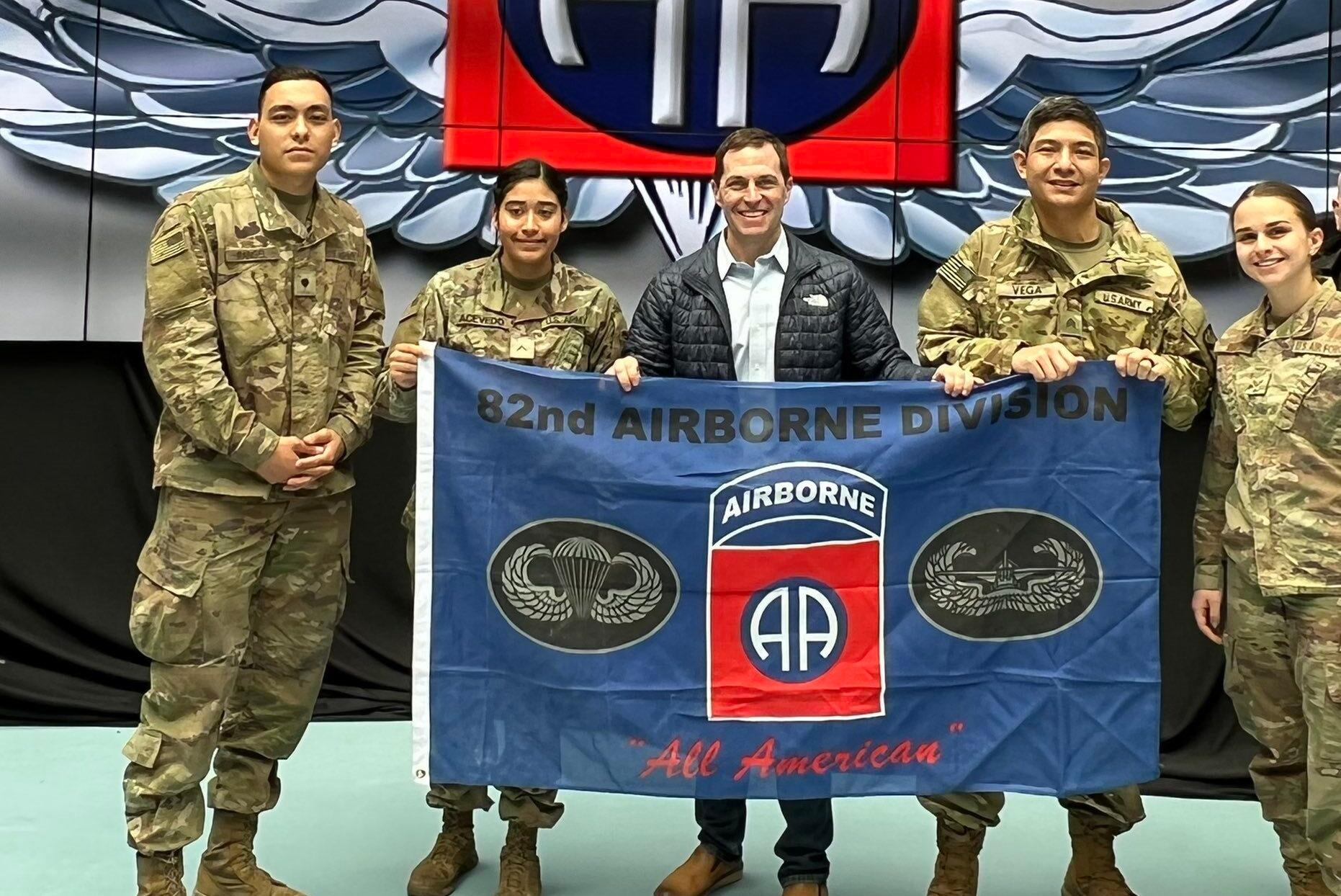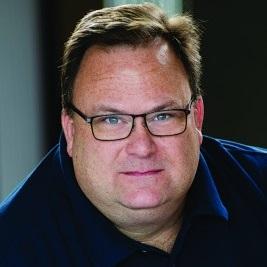
Democratic Rep. Jason Crow of Aurora, returned to Colorado recently from Eastern Europe, where he got an update on the war in Ukraine and the refugee crisis. Crow serves on the U.S. House Armed Services Committee and the U.S. House Intelligence Committee.
He told Colorado Matters he believes the U.S. military surge into Europe sends a clear message to Russia that the United States stands with its NATO allies. Among the troops he visited overseas are the 82nd Airborne Division, which includes Coloradans. Crow was a member of that unit when he was in the military.
Crow had high praise for the people in Poland who have opened their doors to millions of Ukrainian refugees forced to flee their homes.
"I believe the outpouring of support in Europe and Eastern Europe, in particular, has been really unbelievable,” he said.
This interview has been edited for clarity and length
Ryan Warner: What stands out from your time in Poland?
Rep. Jason Crow: Well, Ryan, a couple of things. First off, just the sheer brutality of this war. You've had, in about seven weeks, about 10 million Ukrainians who have been displaced from their homes. A little over half of those have actually left Ukraine, so that's about 25 percent of the population of the country that's either internally displaced or has fled to Poland or surrounding countries in Europe. Over half of the children of Ukraine have fled and are displaced either in the country or outside of the country, so this is a terrible and brutal war.
The second is the troops. I had the privilege of being able to visit my former unit, the 82nd Airborne Division. You know, I started my career in public service as a paratrooper and to see those young paratroopers — those men and women serving us overseas in Poland — was a real honor.
Warner: What is the nature of their work right now?
Crow: Right now, this is a show of support, a support mission primarily. We are bolstering the eastern flank of NATO; the eastern countries that border Russia. We are surging troops into those areas to show Russia that we are standing firm with NATO, but [the troops are] also providing other assistance with sending equipment and supplies and also potentially health care support for the refugees and folks in Poland as well.
Warner: What does it look like in Poland with that sort of crush of humanity given this humanitarian crisis?
Crow: I can't underscore how amazing the people of Poland have been. Here you have a country that is a little bit less than the population of Ukraine that has taken in a substantial amount of their own population. About five percent of the population of their country has increased as a result of [them] opening up their doors. You have the people of Poland largely opening up their own homes, bringing Ukrainian refugees and children in, supporting food kitchens, and of course, sending them weapons and equipment. I had the chance to visit Slovakia and Romania, which are also NATO countries, and are doing much the same. I mean the outpouring of support in Europe and Eastern Europe in particular has been really unbelievable.
Warner: Is the feeling on the ground there that the Russians might attack NATO territory?
Crow: It is the feeling on the ground. You have people in Poland and Romania and the Baltic states — Latvia, Lithuania, Estonia — they are really worried. They’re worried about Vladimir Putin not being a stable man, being isolated, really having his back up against a wall here because he's losing this war in many ways. They are afraid of what he will do because he is desperate, he is a dictator, he is surrounded by “yes men” and autocrats and oligarchs. These are folks who have been invaded by Russia before. They have a long view of history and they're worried about it.
That’s also why you see countries like Finland and Sweden, who have for a very long time deferred on NATO membership. They are now expected in the next couple of weeks to make a decision to join NATO and to make the move to do that in June when the next NATO parliamentary assembly occurs in Spain.
Warner: I don't want to engage in fear mongering or hyperbole, but this is a question that I'd like you to answer with your hat as a member of the House Armed Services Committee on. Does that mean that there are preparations underway for something like a nuclear conflict or entrenched cyber warfare? What, what are those discussions like on that committee?
Crow: I sit on both of the primary national security committees in Congress: the Armed Services Committee and the House Intelligence Committee. I'm one of the few members of Congress that sits on both of those and I can say that, you're right, this is not a time for fear mongering, this is not a time for hyperbole and for people to exaggerate on anything. But it's also a time to take things seriously when you have a man in Vladimir Putin who is isolated, who is potentially not well, who has engaged in the largest land war invasion unprovoked since World War II and is killing literally tens of thousands of innocent people without provocation and cause, it's something to take seriously.
So what we have to do is make sure that we are taking the measures we have to take, being sober-minded, assessing risk, not overreacting, but also being firm and strong too, and not letting Russia set the terms of this engagement and standing firm with our allies. So this is where leadership matters, this is where policy matters, and this is where the fact that we have incredible military leaders and intelligence leaders and collaboration with and reporting to our civilian leadership, which is unique to our system, is really important.
Warner: Is there anything you'd change about the U.S. approach militarily or politically?
Crow: There isn't. I think the military has done an amazing job. We have done exactly what we should do, and surge additional troops into Europe. We have about 80,000 American troops permanently stationed throughout Europe. We have [added to] that by about 25,000, so we have about 105,000 there now. We have formed what are called additional battle groups under NATO and we've gone from four battle groups to eight, and have moved those into Eastern European countries.
We have sent Patriot missile air defense systems and also are doing tremendous humanitarian work for those refugees. And at this same time, the Biden administration has assembled the largest coalition since World War II: a diplomatic coalition, a coalition of intelligence agencies, a coalition that has put together crushing sanctions. It really has been a remarkable diplomatic and political effort and they've done a very fine job.
Warner: You wrote a letter to Secretary of State Antony Blinken in March asking him to speed up the process of accepting Ukrainian refugees into the U.S. Have you seen any movement?
Crow: Yeah, the administration did respond to that. President Biden announced that we're going to take up to 100,000 Ukrainian refugees. It's too early to tell whether that number is too low or too high or just about right, but this refugee crisis is a little bit different from other refugee crises in that Ukrainians overwhelmingly are planning to return back to Ukraine at the end of this war. Over 90 percent say that they are planning to return and to help rebuild their country. These are very patriotic people. They're people who love their country. We see that in the way they're fiercely resisting and fighting.
But these refugees want to return, so we are in a situation of temporary housing, in many cases, and what we see right now is that many of those Ukrainians are staying close to Ukraine. That's why they're going to countries like Romania and the Baltics and Poland because they want to be close so they can return as quickly as they can. We have seen some come to the United States that have friends and family here, but not certainly to the levels that we have in the past.
Warner: But all of that is based on the idea that they can return to Ukraine, and at this point it seems like a big assumption. Should the United States be prepared to roll out a welcome mat that may last years or decades?
Crow: I think so. It does remain to be seen how many can return into Ukraine. The Ukrainians have resisted and held back the Russian invasion. The Russians have pulled out their troops in the northeast and are rearranging those troops in the south and the east and trying to consolidate their invasion. As it stands right now, the Ukrainians remain in control of about 80 percent of Ukrainian territory, so whether that changes over time, we're going to have to see. If there is a situation where there are more — the United States should open up their welcome mats because that's what we do. We are a nation of immigrants and refugees.
Warner: You served in Afghanistan and you have been outspoken when it comes to helping Afghan refugees, especially those who were of service to the United States and allied forces. Does the humanitarian crisis unfolding in and around Ukraine complicate the Afghan crisis?
Crow: No, it does not. This is not a binary choice. We, again, are a country of immigrants and refugees. [Colorado is] a state of immigrants and refugees. I represent a district of immigrants and refugees. Twenty percent of the people that I represent in the 6th Congressional District of Colorado — almost 20 percent were born outside of the country, and what we know in our community is that that makes us stronger. It makes us more vibrant. It makes us a better community. We know that deeply in Colorado and in Colorado in particular, we will be willing to accept immigrants and refugees because that's who we are, that's what we do.
Warner: Do you have some sense of the number of Ukrainian refugees that might be settled in Colorado?
Crow: I don't. We don't have a sense for what it might be nationally. It's just too early to tell. We brought in somewhere around 1,500 to 2,000 Afghan refugees during the Afghan crisis, which was more than our fair share because we're such a welcoming place and we actually do [help settle refugees] really well. We do it better than most states and people know with that, but it’s way too early to tell what it's going to look like for Ukraine yet.
Warner: Thank you so much for your time, Congressman. Appreciate it.
Crow: Thanks, Ryan. Always enjoyed talking with you.









